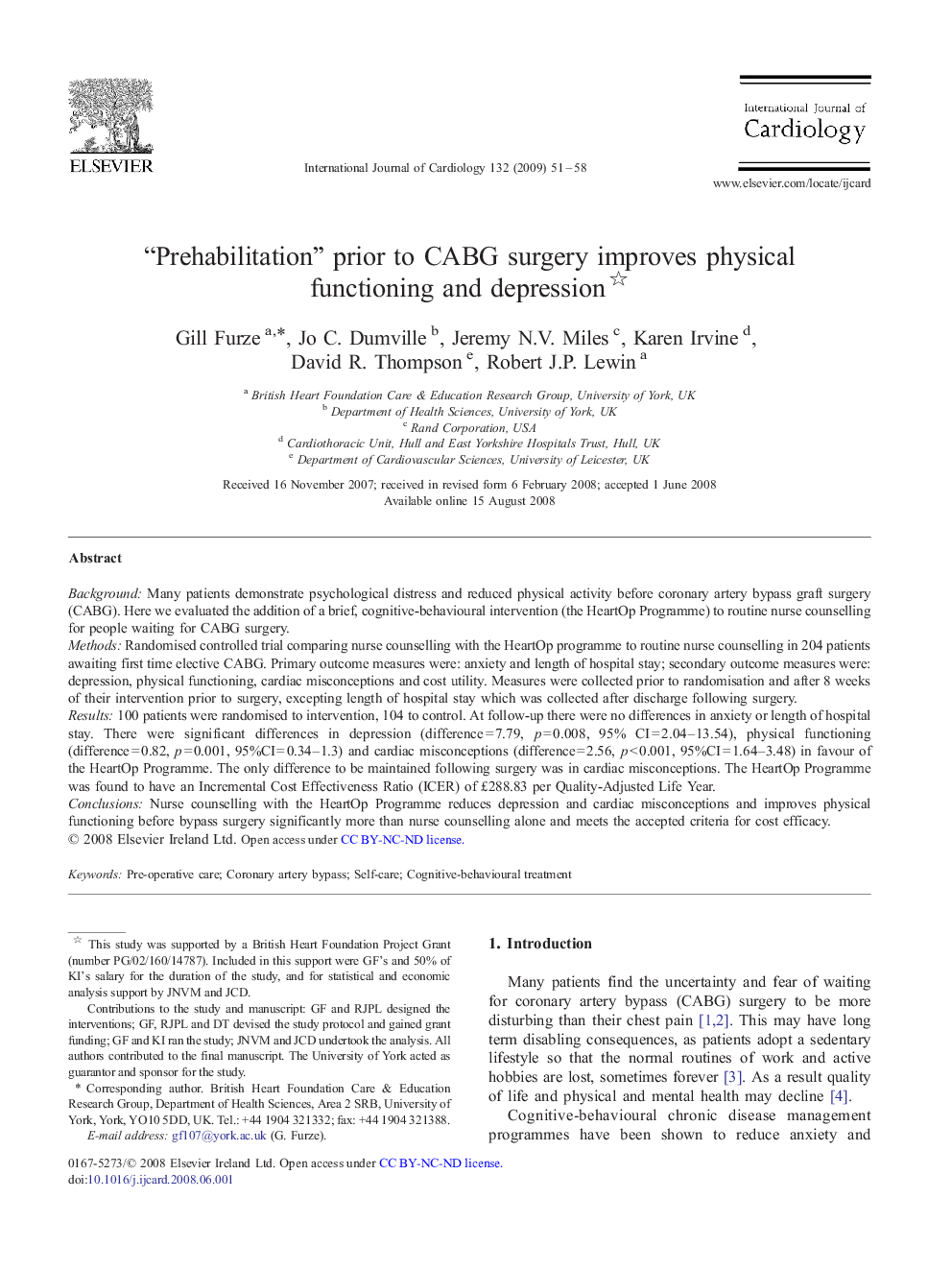| Article ID | Journal | Published Year | Pages | File Type |
|---|---|---|---|---|
| 5979786 | International Journal of Cardiology | 2009 | 8 Pages |
BackgroundMany patients demonstrate psychological distress and reduced physical activity before coronary artery bypass graft surgery (CABG). Here we evaluated the addition of a brief, cognitive-behavioural intervention (the HeartOp Programme) to routine nurse counselling for people waiting for CABG surgery.MethodsRandomised controlled trial comparing nurse counselling with the HeartOp programme to routine nurse counselling in 204 patients awaiting first time elective CABG. Primary outcome measures were: anxiety and length of hospital stay; secondary outcome measures were: depression, physical functioning, cardiac misconceptions and cost utility. Measures were collected prior to randomisation and after 8 weeks of their intervention prior to surgery, excepting length of hospital stay which was collected after discharge following surgery.Results100 patients were randomised to intervention, 104 to control. At follow-up there were no differences in anxiety or length of hospital stay. There were significant differences in depression (difference = 7.79, p = 0.008, 95% CI = 2.04-13.54), physical functioning (difference = 0.82, p = 0.001, 95%CI = 0.34-1.3) and cardiac misconceptions (difference = 2.56, p < 0.001, 95%CI = 1.64-3.48) in favour of the HeartOp Programme. The only difference to be maintained following surgery was in cardiac misconceptions. The HeartOp Programme was found to have an Incremental Cost Effectiveness Ratio (ICER) of £288.83 per Quality-Adjusted Life Year.ConclusionsNurse counselling with the HeartOp Programme reduces depression and cardiac misconceptions and improves physical functioning before bypass surgery significantly more than nurse counselling alone and meets the accepted criteria for cost efficacy.
